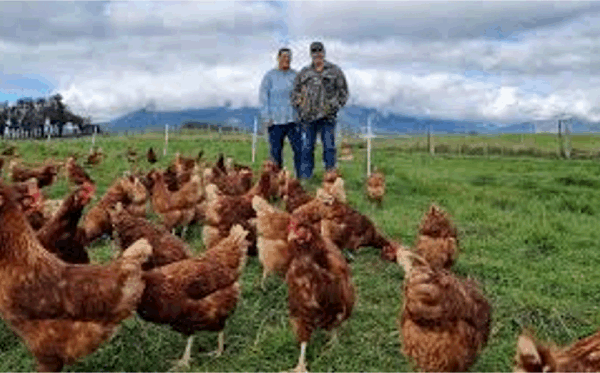사이버 괴롭힘으로 인해 십대 소녀들이 섭식 장애와 미용 시술을 받게 된다는 연구 결과
에이미 쉬핸과 재넬 쇼트하우스 지음
ABC 선샤인 코스트
주제: 건강
9월 29일 일요일
한 십대 소녀가 고양이가 앉아 있는 책상에 앉아 휴대전화를 사용하고 있습니다.
사이버 괴롭힘은 십대 소녀를 집까지 따라와 신체 불만족과 정신 건강 문제를 일으킬 수 있습니다. (ABC 선샤인 코스트: 재넬 쇼트하우스)
선샤인 코스트 대학교의 한 연구에 따르면, 많은 십대 소녀들이 다이어트와 미용 시술을 받도록 압박을 받는다고 느끼면서 사이버 괴롭힘이 십대 소녀들에게 미치는 놀라운 영향이 밝혀졌습니다.
수백 명의 소녀를 대상으로 실시한 이 설문 조사는 외모와 관련된 괴롭힘의 영향력이 커지고 있으며, 신체 불만족과 섭식 장애와 관련이 있음을 강조합니다.
지원 기관인 endED의 수석 실무자이자 섭식 장애 회복 코치인 로라 체임벌린은 절실하게 몸을 바꾸고 싶어하는 기분을 잘 알고 있습니다.
본인이나 아는 사람이 도움이 필요한 경우:
Butterfly National Helpline — 1800 33 4673
Eating Disorders Families Australia — 1300 195 626
Eating Disorders Victoria — 1300 550 236
Eating Disorders Qld — 07 3844 6055
Eating Disorders 전문가
Lifeline 13 11 14
Suicide Call Back Service — 1300 659 467
Kids Helpline — 1800 55 1800
MensLine — 1300 78 99 78
십 대 시절에 그녀는 소셜 미디어에서 외모와 관련된 끊임없는 비판을 받았고, 그것이 그녀가 섭식 장애를 앓게 된 계기가 되었습니다.
“제가 느끼는 방식을 멈추는 유일한 방법은 제 외모를 바꾸는 것뿐이라고 느꼈던 것을 기억합니다.”라고 Chamberlain 씨가 말했습니다.
“그것은 나를 삼켰고, 나는 그것에서 벗어날 방법을 몰랐습니다.”
선샤인 코스트 대학의 신경 과학 연구자들은 10대 소녀에 대한 외모 관련 괴롭힘이 이전에 생각했던 것보다 훨씬 더 흔하다는 것을 발견했습니다.
작년 3월에서 6월 사이에 실시된 이 조사는 호주와 뉴질랜드에서 14세에서 19세 사이의 300명 이상의 소녀를 대상으로 실시되었습니다.
긴 검은 머리를 한 미소 띤 젊은 여성.
탈리아 프린스는 이 조사 결과가 뇌 발달의 취약한 단계에서 외모 관련 사이버 괴롭힘의 영향을 보여준다고 말합니다. (제공: UniSC)
청소년 정신 건강 박사 연구원 탈리아 프린스는 데이터에 따르면 응답자의 98%가 어떤 형태의 사이버 괴롭힘을 경험했으며 62%가 외모와 관련이 있다고 보고했다고 말했습니다.
“우리가 발견한 것은 외모 관련 사이버 괴롭힘이 청소년에게 매우 흔하다는 것입니다.” 프린스 여사가 말했습니다.
“외모 관련 사이버 괴롭힘을 경험한 사춘기 소녀의 96%가 다이어트, 운동 또는 미용 시술을 통해 외모를 바꾸고 싶어한다고 보고했습니다.
“또한 신체 불만족과 섭식 장애 증상의 증가와 관련이 있는 것으로 나타났습니다.”
프린스 여사는 섭식 장애가 사춘기 소녀의 정신 질환 중 사망률이 가장 높고 신체 불만족이 주요 위험 요인이기 때문에 조치가 중요하다고 말했습니다.
로라 체임벌린은 배경에 endED 간판이 있는 노트북을 들고 미소를 짓고 있습니다.
로라 체임벌린은 사이버 괴롭힘이 청소년에게 미치는 해로운 영향과 소셜 미디어가 젊은이들에게 미치는 영향을 보여주기 위해 더 많은 연구가 필요하다고 말합니다.
소셜 미디어 ‘촉매제’
체임벌린 여사는 데이터가 endED에서 그녀가 보고 있는 것과 일치한다고 말했습니다.
“이것은 개인과 부모, 보호자로부터 듣는 것과 확실히 일치합니다.” 체임벌린 여사가 말했습니다.
“소셜 미디어는 섭식 장애의 시작을 촉진했고 점점 더 어린 영향을 받는 개인.”
청소년과 가족 지원
Butterfly Foundation: 전국 헬프라인 1800 ED HOPE(1800 33 4673), 오전 8시~자정(AEST/AEDT), 주 7일
ReachOut Australia: 청소년을 위한 기밀 온라인 동료 지원 및 웰빙을 위한 온라인 리소스
Headspace: 각 주 및 준주에 있는 센터 또는 온라인 지원을 위해 eheadspace를 확인하세요
The Kids Helpline: 1800 55 1800에서 24시간 지원
Lifeline: 13 11 14에서 모든 호주인을 위한 24시간 지원
생활 경험이 있는 코치인 Chamberlain 여사는 자신이 일하는 청소년들이 자신의 회복 여정 덕분에 자신에게 말하는 것을 덜 부끄럽게 여긴다고 말합니다.
그녀는 긍정적인 온라인 행동을 옹호합니다.
“우리는 사람들이 해로운 영향력 있는 사람, 마케팅 회사 또는 불친절하게 말하는 사람을 팔로우 취소하도록 권장합니다.” Chamberlain 여사가 말했습니다.
“우리는 청소년들에게 자존감을 키우고 여러분이 단지 여러분의 몸 그 이상의 존재라는 것을 상기시켜주는 긍정적인 롤모델을 따르도록 권장합니다.”
그녀는 이 연구가 청소년에게 미치는 사이버 괴롭힘의 해로운 영향에 대한 인식을 높이는 데 도움이 될 것이라고 말했습니다.
체임벌린 여사는 섭식 장애로 어려움을 겪는 사람들을 위한 도움이 가능하다고 말했습니다.
그녀는 “섭식 장애에 대한 경험이 있는 전문의에게 연락하여 조기에 개입하세요.”라고 말했습니다.
“항상 희망은 있습니다.”
10대 소녀가 소파에 몸을 구부리고 앉아 머리를 손으로 잡고 있습니다.
연구에 따르면 사이버 괴롭힘의 희생자가 된 10대 소녀는 자신의 몸을 부끄러워할 가능성이 더 높습니다. (ABC Sunshine 해안: Janel Shorthouse)
플랫폼 금지가 답일까?
연방 정부는 소셜 네트워크와 성인 사이트에 접속하는 사람들의 연령을 확인하는 방법을 시범적으로 시행하고 있습니다.
올해 말까지 아동을 위한 소셜 미디어 금지가 도입될 예정입니다.
사진은 얼굴이 흐릿한 소년이 휴대전화를 들고 있고, 어두워진 배경에서 빛이 소년의 얼굴을 비추고 있습니다. 얼굴이 흐릿한 소년이 휴대전화를 들고 있고, 어두워진 배경에서 빛이 소년의 얼굴을 비추고 있습니다.
Anthony Albanese는 올해 말까지 아동이 소셜 미디어에 접속하는 것을 금지하는 법안을 도입하겠다고 다짐했지만, 연령 제한은 아직 결정되지 않았습니다.
올해 말까지 Facebook과 Instagram과 같은 소셜 미디어 플랫폼에서 아동을 금지하는 법안을 도입하고자 합니다.
하지만 Prince 여사는 아동을 금지하는 것이 온라인 괴롭힘과 신체 이미지 문제를 해결하는 데 도움이 되지 않을 수 있다고 말합니다.
그녀는 “많은 연구에 따르면 소셜 미디어는 청소년의 사회적 연결에 정말 중요하며, 이는 많은 정신 건강 문제에 대한 예방 요소가 될 수 있습니다.”라고 말했습니다.
“소셜 미디어의 부정적 영향을 완화하기 위해 할 수 있는 가장 중요한 일 중 하나는 디지털 리터러시를 강화하는 것입니다.
“이렇게 하면 젊은이들이 온라인에서 보는 콘텐츠를 비판적으로 평가하고, 위험을 이해하고, 괴롭힘을 신고하는 방법을 배우는 데 도움이 될 것입니다.”
프린스 씨는 소셜 미디어 플랫폼이 사이트에서 발생하는 일에 대해 더 많은 책임을 져야 한다고 생각합니다.
“그들은 사이버 괴롭힘에 대한 더 엄격한 정책을 시행하고 피해를 입은 사람들에게 리소스를 제공해야 합니다.”라고 그녀는 말했습니다.
중년 여성이 텅 빈 교실에서 셀카를 찍으며 미소를 짓고 있습니다.
키라 펜더가스트는 개인적인 경험이 다른 사람들을 비슷한 피해로부터 보호하려는 자신의 사명을 형성한다고 말합니다. (제공: 키라 펜더가스트)
‘큰 대화’를 나누세요
온라인 안전 교육 그룹인 Safe on Social의 설립자인 키라 펜더가스트는 괴롭힘의 영향을 직접 알고 있습니다.
그녀의 신체 이미지 문제는 어린 시절에 자신의 체격에 대한 끊임없는 놀림으로 시작되어 성인이 되어서도 계속되었습니다.
사이버 괴롭힘을 신고하기 위해 취해야 할 단계를 보여주는 다이어그램.
청소년은 사이버 괴롭힘을 신고하도록 권장됩니다. (제공: eSafety.gov.au)
어떤 사람이 그녀를 표적으로 삼기 위해 가짜 계정을 만들면서 괴롭힘이 심화되었습니다.
Pendergast 여사는 아이들이 온라인 세계에 접속하기 전에 자존감을 키우는 것이 필수적이라고 생각합니다.
그녀는 “큰 대화는 일찍 시작해야 합니다.”라고 말했습니다.
“청소년들에게 온라인에서 보는 것이 현실이 아니며 자신을 정의하지 않는다는 것을 가르쳐야 합니다.”
Safe on Social은 인터넷을 안전하게 탐색하고 사이버 괴롭힘에 대한 회복력을 키우는 도구를 제공합니다.
Pendergast 여사는 강력한 지원 네트워크와 바디 포지티비티에 대한 공개 대화가 필요하다고 말했습니다.
그녀는 “스포츠, 예술, 음악… 감당할 수 있는 모든 것”이라고 말했습니다.
그녀는 또한 부모에게 자녀의 온라인 활동을 모니터링하고 우려 사항을 해결하는 데 적극적으로 나서라고 촉구했습니다.
“피해가 발생할 때까지 기다리지 말고 처음부터 참여하세요.”라고 Pendergast 여사는 말했습니다.
그녀는 청소년의 사이버 괴롭힘을 해결하기 위한 핵심 단계로 의사소통을 촉진하고 신체 긍정성을 장려하는 것을 옹호합니다.
희망과 지원
Murdoch Children’s Research Institute의 회복력과 정신 건강 연구 프로그램에 따르면 괴롭힘과 같은 외상적 삶의 사건에 대처하는 데 도움이 되는 것으로 입증된 조치가 다음과 같습니다.
긍정적인 자아 정체성 촉진
가족 및 친구와 좋은 관계 유지
문화와의 강력한 관계 유지
청소년이 학교 시간 외에 취미나 활동을 즐길 수 있도록 보장
가족 지도
학교와 교사와의 긍정적인 교류 보장
미래에 대한 낙관적 감각 촉진
청소년이 감정을 식별하고 조절하는 능력을 키우도록 돕기
ABC Sunshine — 받은 편지함에 지역 뉴스 제공
매주 수요일에 무료로 제공되는 지역 뉴스레터 받기
귀하의 정보는 ABC 개인정보 수집 성명에 따라 처리됩니다.
이 사이트는 reCAPTCHA 및 Google 개인정보 처리방침과 서비스 약관의 보호를 받습니다.
이메일 주소
ozilbo07@gmail.com
구독
받은 편지함에서 아침 뉴스 브리핑 받기
오늘 밤의 긴급 뉴스와 하루를 형성할 스토리에 대한 정보를 제공하는 ABC NewsMail을 구독하세요.
귀하의 정보는 ABC 개인정보 수집 정책에 따라 처리됩니다.
이 사이트는 reCAPTCHA에 의해 보호되며 Google 개인정보 처리방침과 서비스 약관이 적용됩니다.
이메일 주소
ozilbo07@gmail.com
구독
2024년 9월 29일 일요일 오전 11시 25분에 게시됨2024년 9월 29일 일요일 오전 11시 25분에 게시됨, 2024년 9월 29일 일요일 오전 11시 37분에 업데이트됨
Cyberbullying driving teen girls towards eating disorders and cosmetic procedures, study finds
By Amy Sheehan and Janel Shorthouse
Sun 29 SepSunday 29 September
abc.net.au/news/cyberbullying-research-eating-disorders-tenenage-girls/104400772
Link copiedShare article
A University of the Sunshine Coast study has revealed the alarming effects of cyberbullying on teenage girls, many of whom feel pressured to diet and undergo cosmetic procedures.
The survey of hundreds of girls highlights the growing impact of appearance-related bullying and its connection to body dissatisfaction and eating disorders.
Laura Chamberlain, a senior practitioner and eating disorder recovery coach with support organisation endED, knows how it feels to desperately want to change your body.
If you or someone you know needs help:
- Butterfly National Helpline — 1800 33 4673
- Eating Disorders Families Australia — 1300 195 626
- Eating Disorders Victoria — 1300 550 236
- Eating Disorders Qld — 07 3844 6055
- Professionals Credentialed in Eating Disorders
- Lifeline on 13 11 14
- Suicide Call Back Service — 1300 659 467
- Kids Helpline — 1800 55 1800
- MensLine — 1300 78 99 78
As a teenager she experienced relentless appearance-related criticism on social media that contributed to her developing an eating disorder.
“I remember feeling like the only way to stop the way I was feeling was to change the way I looked,” Ms Chamberlain said.
“It consumed me, and I didn’t know how to escape it.”
Neuroscience researchers from the University of the Sunshine Coast have found that appearance-related bullying against teenage girls is far more common than previously thought.
The survey, conducted between March and June last year, involved more than 300 girls aged 14 to 19 across Australia and New Zealand.
Youth mental health PhD researcher Taliah Prince said the data showed that 98 per cent of respondents had experienced some form of cyberbullying and that 62 per cent reported that it related to the way they looked.
“What we did find is that appearance-related cyberbullying is very prevalent in adolescents,” Ms Prince said.
“Ninety-six per cent of adolescent girls who experienced appearance-related cyberbullying reported the desire to change their appearance through dieting, exercise, or cosmetic procedures.
“We also found it was associated with increased body dissatisfaction and eating disorder symptoms.”
Ms Prince said action was vital because eating disorders had the highest mortality rate among psychiatric conditions in adolescent girls and that body dissatisfaction was the leading risk factor.
Social media ‘the catalyst’
Ms Chamberlain said the data matched what she was seeing in her work at endED.
“This certainly aligns with what we are hearing from individuals as well as parents and carers,” Ms Chamberlain said.
“Social media was the catalyst for the start of their eating disorder and we’re seeing younger and younger individuals impacted.”
Support for young people and families
- The Butterfly Foundation: National helpline 1800 ED HOPE (1800 33 4673), 8am-midnight (AEST/AEDT), 7 days a week
- ReachOut Australia: Confidential online peer support for young people and online resources for wellbeing
- Headspace: Centres in each state and territory or check out eheadspace for online support
- The Kids Helpline: 24-hour support on 1800 55 1800
- Lifeline: 24-hour support for all Australians on 13 11 14
As a coach with lived experience, Ms Chamberlain says that teenagers she works with feel less shame talking to her because of her own recovery journey.
She advocates for positive online behaviours.
“We encourage people to unfollow harmful influencers, marketing companies or anyone speaking unkindly,” Ms Chamberlain said.
“We encourage teens to follow positive role models who build self-esteem and remind you that you are so much more than just your body.”
She said the research would help raise awareness of the harmful effects of cyberbullying on adolescents.
Ms Chamberlain says help is available for those struggling with eating disorders.
“Reach out to a GP experienced with eating disorders for early intervention,” she said.
“There is always hope.”
Is a platform ban the answer?
The federal government is trialling methods to verify the age of people accessing social networks and adult sites.Social media ban for children to be introduced before the end of this year
Photo shows A boy with a blurry face holds a phone, the light illuminating his face against the darkened background.
Anthony Albanese vows to introduce legislation to ban children from accessing social media by the end of this year — but the age cut-off is yet to be determined.
By the end of the year, it wants to introduce legislation banning children from social media platforms such as Facebook and Instagram.
But Ms Prince says banning children might not help solve online bullying and body image problems.
“A lot of research shows that social media is really important for adolescent social connection, and this can be a preventative factor for many mental health concerns,” she said.
“One of the most important things we can do to mitigate the negative impacts of social media is by enhancing digital literacy.
“This would help young people critically evaluate the content they see online, understand the risks and learn how to report bullying.”
Ms Prince believes social media platforms need to take more responsibility for what occurs on their sites.
“They need to enforce stricter policies against cyberbullying and provide resources for those affected,” she said.
Have the ‘big conversations’
Kirra Pendergast, the founder of online safety education group Safe on Social, knows firsthand the impact of bullying.
Her body image struggles began in childhood with relentless teasing about her size and continued into adulthood.
The harassment escalated when a person created fake accounts to target her.
Ms Pendergast believes building self-esteem before children access the online world is essential.
“Big conversations need to start early,” she said.
“Teach teens that what they see online isn’t real and doesn’t define them.”
Safe on Social provides tools to navigate the internet safely and build resilience against cyberbullying.
Ms Pendergast said the need for strong support networks and open conversations about body positivity.
“Lots of sport, art, music … whatever you can afford,” she said.
She also urged parents to monitor their children’s online activity and be proactive in addressing concerns.
“Don’t wait until the damage is done, be involved from the start,” Ms Pendergast said.
She advocates fostering communication and encouraging body positivity as key steps in tackling cyberbullying among young people.
Hope and support
The Resilience and Mental Health research program at Murdoch Children’s Research Institute says there are measures proven to help children cope with traumatic life events such as bullying, including:
- Fostering a positive sense of self-identity
- Maintaining a good connection to family and friends
- Maintaining a strong connection to culture
- Ensuring teens are enjoying hobbies or activities outside of school hours
- Family guidance
- Ensuring there is a positive engagement with the school and the teachers there
- Fostering a sense of optimism for the future
- Helping teens build the capacity to identify and regulate their emotions
ABC Sunshine — local news in your inbox
Get our local newsletter, delivered free each Wednesday
Your information is being handled in accordance with the ABC Privacy Collection Statement.
This site is protected by reCAPTCHA and the Google Privacy Policy and Terms of Service apply.
https://www.google.com/recaptcha/api2/anchor?ar=1&k=6LcNjL8lAAAAAB3chG8dvYH2LKi33r9xFw0kihjQ&co=aHR0cHM6Ly93d3cuYWJjLm5ldC5hdTo0NDM.&hl=ko&type=image&v=xds0rzGrktR88uEZ2JUvdgOY&theme=light&size=invisible&badge=bottomright&cb=wks77vs2dkfyEmail addressSubscribe
Get a morning news briefing in your inbox
Subscribe to our ABC NewsMail bringing you breaking news from overnight, plus a heads-up on the stories that will shape your day.
Your information is being handled in accordance with the ABC Privacy Collection Statement.
This site is protected by reCAPTCHA and the Google Privacy Policy and Terms of Service apply.
Posted Sun 29 Sep 2024 at 11:25amSunday 29 Sep 2024 at 11:25am, updated Sun 29 Sep 2024 at 11:37am










